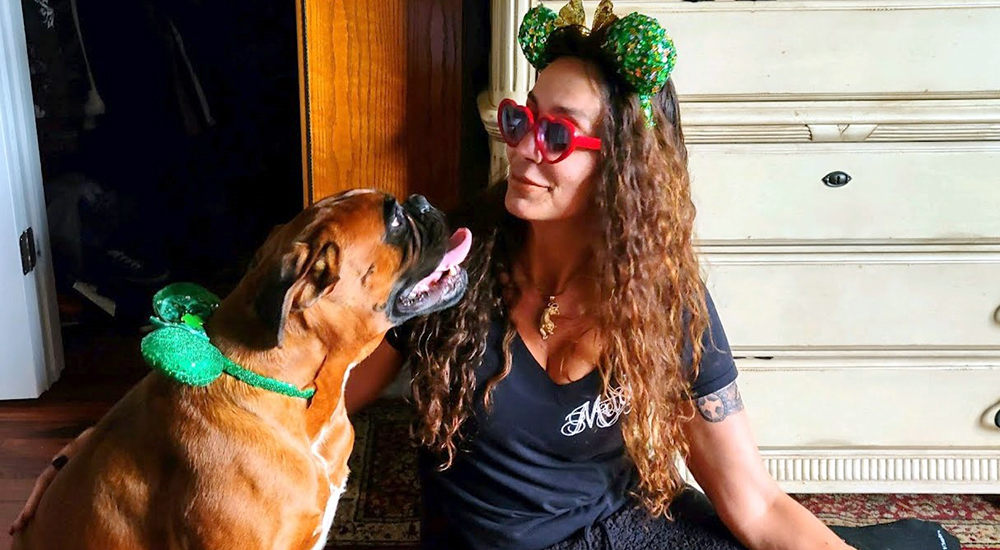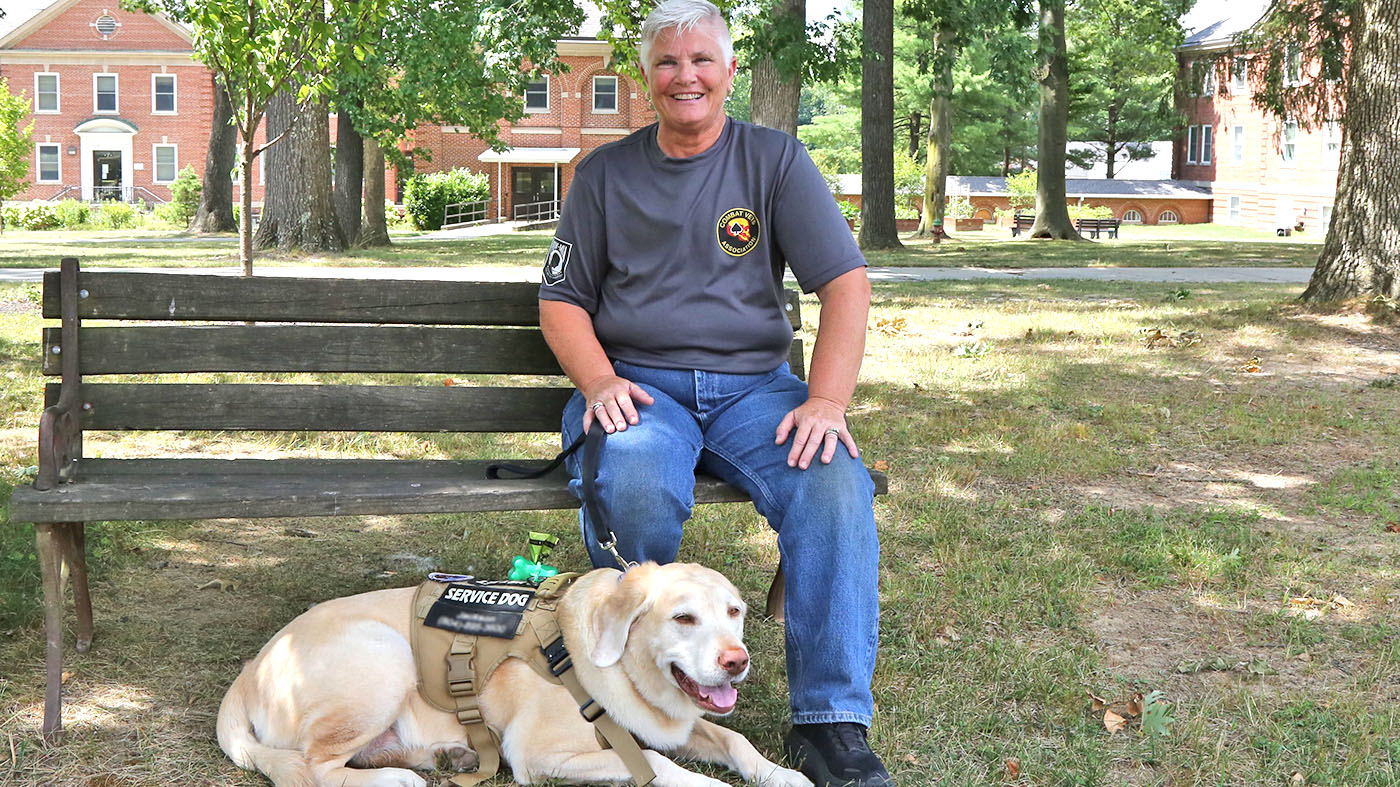“The headaches were so severe I used to close myself in a dark, quiet room to get relief. I had panic attacks with the migraines, and I was unable to do anything except isolate myself and control my breathing,” said Navy Veteran JL. “It was the most difficult time in my life. I am a mother and I needed to care for my children, and I could barely take care of myself.”
For JL, headaches are an after effect of a traumatic brain injury (TBI) from a 1998 motor vehicle accident. She was stationed in Italy and working as a translator and sustained skull fractures, damage to her face, and blindness in both eyes. She eventually regained sight in her left eye and required several reconstructive surgeries to repair the damage to her face and head.
“After the accident, I was medevacked to Germany, and when I was stable enough to return to the U.S., I was transported to the Navy hospital in Bethesda, Maryland, where I spent nearly a year in recovery,” continued JL. “When I was finally strong enough to be discharged from the hospital, I tried to resume my life as a civilian.”
“My pain was a nine out of 10.”
Life was nomadic for JL after her medical discharge from the Navy. She moved from Maryland to New York to Nevada to Tennessee before finding a home in the Tidewater area of southeast Virginia, accompanied by her service dog Zeus.
During that time, she tried working with various VA and civilian medical professionals to rehabilitate and relieve painful headaches.
“The headaches were always part of my life after the accident. My pain was often a ‘nine out of 10,’ and four to five times a week, I was incapacitated,” she said. “I don’t know how I managed. I just knew I had no other choice.”
Relief finally came for JL after connecting with the Polytrauma System of Care team at the Hunter Holmes McGuire VA Medical Center in Richmond, Virginia.
As with all new patients, the initial appointment collected details of the inciting incident, any past treatments, and the individual needs and goals of the Veteran.
Holistic approach and less medications
JL and Dr. Karen Williams, nurse practitioner, designed a care plan together. JL did not want a treatment plan that included a lot of medications with potential side effects. They discussed her treatment goals and how they could achieve them through a holistic approach to her care.
Williams is deputy director of the Headache Center of Excellence in Richmond.
JL was diagnosed with post-traumatic headaches, secondary to her severe TBI and anxiety. Her treatment plan from Dr. Williams and the headache center was incorporated with treatment from her TBI/polytrauma providers. Together, they focused on her memory difficulties and other TBI related injuries.
“JL initially was seen to restart her Botox injections and they were moderately successful,” said Dr. Williams. “We then added occipital blocks to reduce the posterior headache pain, acupuncture to reduce the headaches, and changed her medications to a newer medication that resulted in quicker resolution of headaches with fewer side effects. A neuromodulation device, a device that delivers mild electrical stimulation, was added for home use to help with anxiety symptoms along with relaxation techniques. She was also referred to psychology to help process the traumatic memories of her accident.”
Supportive encouragement a key factor
Throughout her care, providing education on diagnosis, treatment options and supportive encouragement were key factors in helping JL recover and improve her functional ability.
“Like many of our Veterans, JL deals with multiple complex issues,” continued Williams. “We need to peel back the layers a little at a time to get to the right treatments. This means letting the Veteran discuss what matters most to them and then utilizing resources to help the Veteran achieve improved health and function.”
JL’s care continues at Richmond VA. She continues to refine her headache treatment plan and address other physical challenges. Rehabilitation following a TBI can be a long process. However, her life is much better thanks to clinicians from Richmond VA’s Headache Center of Excellence.
“My life is much more manageable.”
“The key for me is that Dr. Williams understood I wanted a different approach for my care. I prefer the treatments where I can avoid being ‘drugged up.’ My quality of life might not be what I want it to be, but since I met Dr. Williams, my life is much more manageable,” JL said. “I can spend more quality time with my children. The treatments have given me a renewed ability to be more mobile and social. I am less anxious. I have a medication that will help should I get a bad headache while I am out.”
For more information about VA treatments for migraines and headaches, visit www.polytrauma.va.gov/headache/.
Topics in this story
More Stories
Combat Veteran faces the traumatic events of her PTSD during prolonged exposure therapy and looks forward to the days to come.
Bob Jesse Award celebrates the achievements of a VA employee and a team or department that exemplifies innovative practices within VA.
The Medical Foster Home program offers Veterans an alternative to nursing homes.







